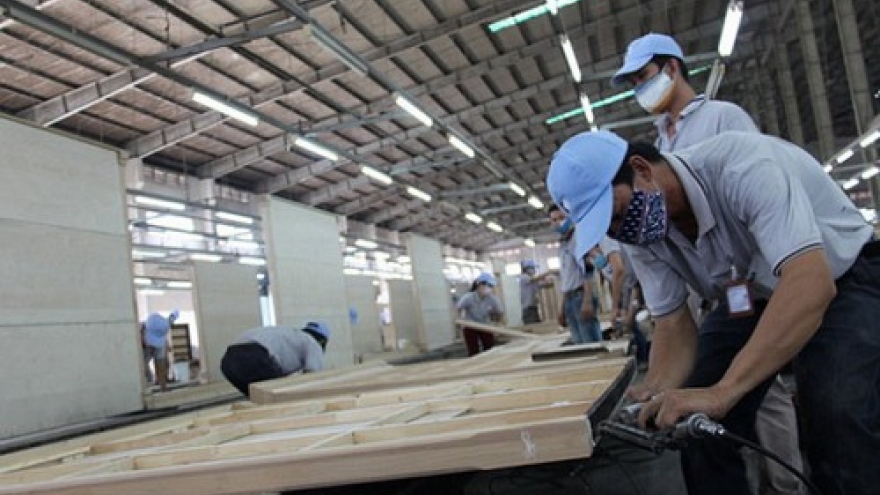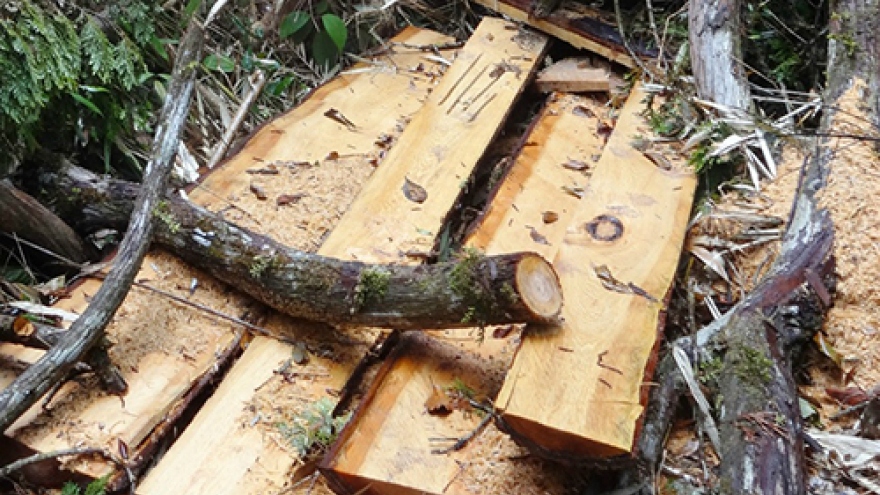A new milestone in the fight against illegal logging
With increased trade comes an increased need for supervision, which is what last week’s signing of a voluntary partnership agreement on forest law enforcement, governance and trade between Vietnam and the EU hopes to achieve in the fight against illegal logging.
 |
| Karmenu Vella, European Commissioner for Environment, Maritime Affairs, and Fisheries (AFP Photo/John Thys) |
In June of this year, Prime Minister Nguyen Xuan Phuc ordered a total ban on logging timber in the natural forests of the central highlands. The purpose is to protect the land and water resources from further erosion, as the impacts of climate change and drought have been further aggravated by the destruction of forests.
The EU applauds this decision. We are leaders in fighting climate change and greening our economies, and we promote partnerships in these areas abroad. We are particularly proud of our partnership with Vietnam, part of our support for Vietnam’s international integration strategy. And last week we witnessed a new achievement in our partnership, as the EU and Vietnam have reached agreement in principle on an ambitious new timber deal.
Once implemented, it will secure access for Vietnamese timber to the EU, one of the biggest timber markets in the world. The stakes are high: in 2014, the timber trade between Vietnam and the EU was worth $705 million.
Timber sold in the EU must come from verified sources - sources that are both legal and sustainable.
The new agreement will make that possible, providing assurance that exports to the EU are from legal sources. It will apply both to timber that is domestically sourced, and to timber that is imported to Vietnam. To implement the deal, Vietnam has agreed to develop a system that will verify the legality of timber and timber products throughout the supply chain. Our negotiations have ensured that this system will be robust and credible, covering social, environmental, and fiscal obligations.
Vietnam’s forests are a magnificent store of biodiversity, home to many plants and animal species found nowhere else in the world. As well as being a treasure trove of exotic flora and fauna, they provide income for rural communities, and protect locals from extreme climatic events.
These forests need to be managed sustainably, to ensure their long-term prosperity and to safeguard environmental security. Illegal logging is a significant challenge, depriving the government of revenue, threatening biodiversity and creating conflicts with forest communities.
The task now is to make the deal operational. The EU will work with Vietnam on this, monitoring how the agreement is implemented, especially in areas where stakeholders have concerns. Independent forest monitors from civil society, with their specialised knowledge of local challenges, will be able to help.
Vietnam has committed to include all stakeholders, and to create mechanisms that will enable citizens to take part in consultations and participate in the scheme. The EU is offering technical assistance and support. Vietnam now needs to mobilise resources and build capacity, creating the system that will assure the legality of the timber. There will be regular independent evaluations, auditing the scheme and identifying areas for improvement.
Setting up the scheme will take time, but the advantages are clear. Implementing the agreement will give Vietnam a competitive advantage over other countries that do not have such control over their timber. It will also strengthen the image of timber products destined for other markets, further boosting sustainable trade. The new agreement shows how much Europe and Vietnam have to gain from closer co-operation.
While the EU supports Vietnam’s international integration, and its ambitious plans to protect biodiversity and fight climate change at home, I want to build on this momentum, and employ the same energy in our joint efforts to crack down on wildlife trafficking.
We invite Vietnam to join the EU in our global strategy to ensure proper protection of biodiversity worldwide and at home, for the sake of our future generations. Working together closely will enable us to tackle the roots of the problem, targeting the organised criminal groups controlling this illegal trade.
We also need to find ways to reduce demand for illegal products, from rhino horn to pangolin scales. Trafficking is not a victimless crime: just as illegal logging harms local communities here in Vietnam, poaching in Africa deprives local communities of their livelihood as well.
I look forward to working together more closely with Vietnam on these problems. Solving them won’t just improve the rule of law - it will help protect biodiversity, our common global heritage, and boost sustainable development here in Vietnam. Europe is deeply committed to supporting Vietnam in properly implementing its international commitments and ensure the country’s participation in global efforts for the good of our children and future generations.



